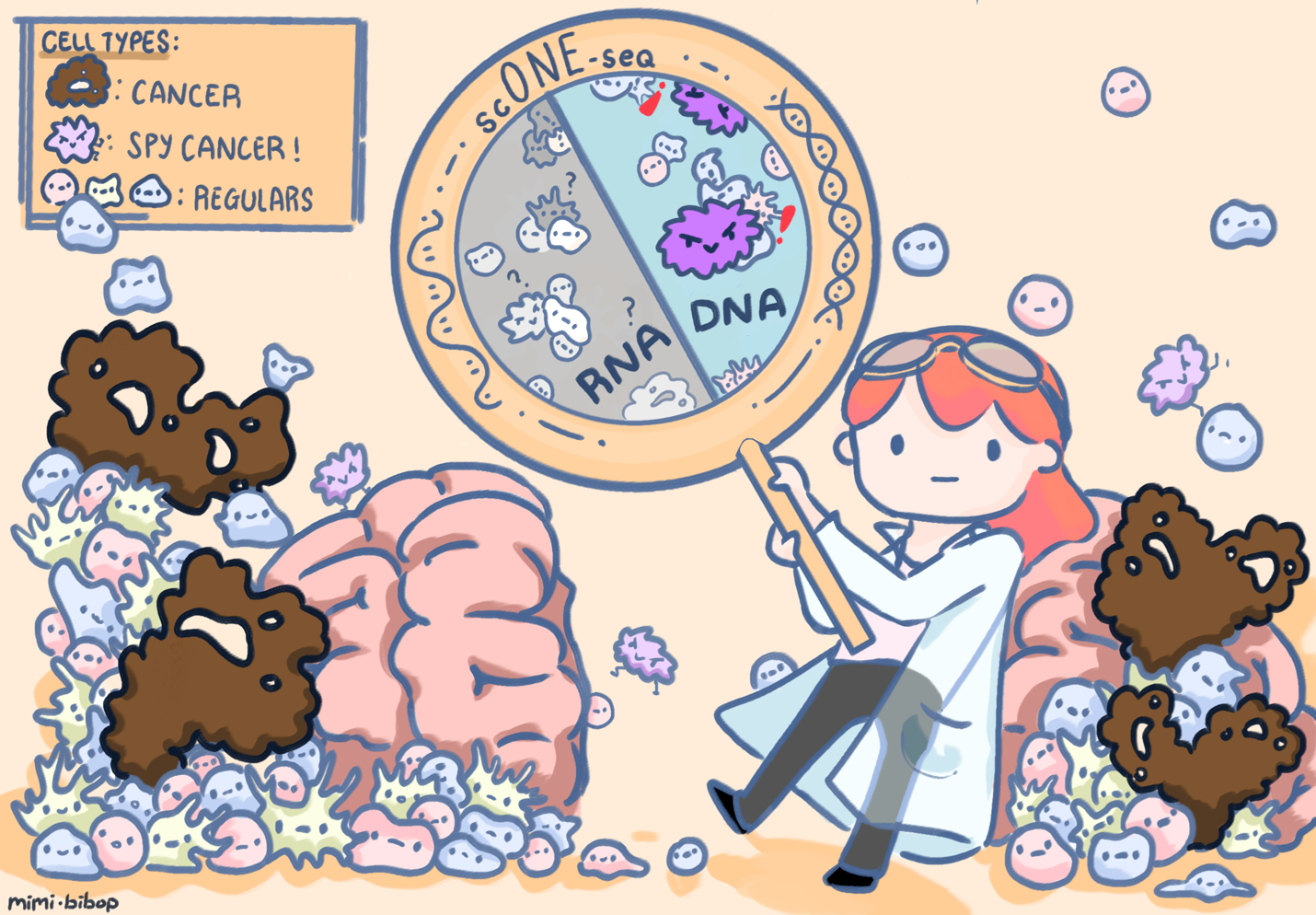Prof Angela Wu
PhD in Bioengineering
Associate Professor, Division of Life Science
Associate Professor, Department of Chemical and Biological Engineering
Associate Director of Center for Epigenomics Research
Associate Director of HKUST-MGI Joint Research Center
Astrocytoma is a deadly and aggressive type of brain tumor, and patients with this type of tumor have a survival rate of around only 5 percent within five years of diagnosing the disease. Using a new single-cell ‘multi-omic’ technology that they invented, called scONE-seq, Prof Wu’s team has discovered a small and unique tumor cell subpopulation in a patient astrocytoma sample. This unique tumor population disguised themselves as normal astrocytes of the brain, which could escape detection using other common tumor sequencing methods. In addition, this ‘spy’ tumor cell also showed molecular features that are related to drug resistance; the comprehensive role of this ‘spy’ tumor cell in tumor progression will be an important direction for future investigations.
Our goal in this project is to build a high-throughput scONE-seq platform, and use this technology invented by our lab to profile thousands of brain tumor cells before and after drug treatment, to identify potential pathways that are involved in drug resistance, thereby identifying novel drug targets that can work synergistically with existing treatment and enhance patient outcomes. With the data generated from this pilot study, we hope to establish a streamlined pipeline for single-cell-based cancer drug discovery that is generalizable for many different cancers and other aging-related diseases.
